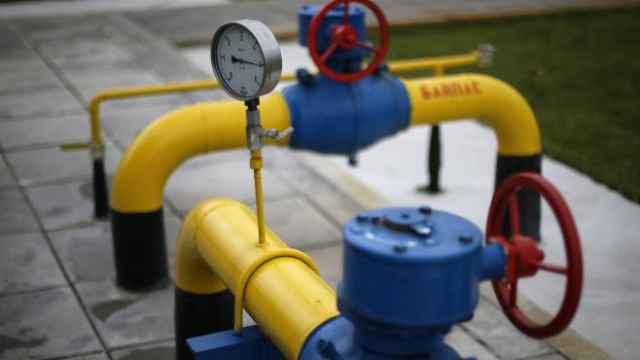BRATISLAVA — Slovak Economy Minister Pavol Pavlis said Thursday that he will meet the Russian energy minister in Moscow next week to discuss reduced gas deliveries from Gazprom that have persisted since early September.
The European Union member is experiencing a daily reduction of around 50 percent in deliveries compared with the amount national gas importer SPP has requested, but it is prepared for further cuts this winter thanks to full storage tanks and back up supply deals, Pavlis said.
Pavlis, whose portfolio includes energy, said SPP has been requesting around 12.4 million cubic metres per day but only receiving 6.4 mcm. He plans to meet with Russian Energy Minister Alexander Novak on Tuesday and Wednesday.
"Every day I receive information about the reduction of quantities, and now it is from 48 percent to 51 percent every day," Pavlis said in an interview in his government office.
"Next week I have in my plans to travel to the Russian Federation, and I have a meeting with Mr. Novak. My topic will be the situation with gas."
The meeting with the Russian energy minister also comes as the European Union is trying to broker a deal to supply gas this winter to Ukraine.
Moscow stopped deliveries to Kiev in June due to a pricing dispute but so far exports have continued to flow through to EU customers, some of whom have been receiving less than the requested amounts.
Moscow Warning
Russia is Europe's biggest supplier of natural gas, meeting almost a third of annual demand and in return, state-controlled Gazprom receives around $80 billion in annual revenues from its European customers, making up the majority of its income.
Starting in September, Gazprom sent less-than-requested deliveries to Poland, Slovakia, Austria and Hungary after the EU began sending gas to Ukraine — a clear warning from Moscow ahead of the winter heating season when the industry switches to higher pricing.
Slovakia, which has the biggest capacity to ship gas east to Ukraine and is a major transit point for Russian exports to the EU, has repeatedly said the crisis in Ukraine would not affect eastward flows. Slovakia opened a new connection in September able to deliver gas to Ukraine.
Moscow halted gas flows to Ukraine three times in the past decade, in 2006, 2009 and since June this year, although this year countries like Slovakia are better prepared, Pavlis said.
A five-year deal with E.ON Global Commodities to supply up to 2 million cubic meters per day via Austria when needed and full storage tanks have left Slovakia ready for a potential disruption in Russian deliveries, he added.
Stress tests have also shown that the country would manage to keep industry and consumers supplied during a longer-term gas cut due to the backup deals and ability to ship gas bought on the spot market, Pavlis said.
"It is a different situation than in 2009 when Slovakia wasn't prepared," he said in the interview in his Bratislava office. "Our ministry and SPP are ready for the situation."
"Storage is 99 percent full in Slovakia, and we have the contracts for reverse from the Czech Republic, Germany and Austria."
A Message from The Moscow Times:
Dear readers,
We are facing unprecedented challenges. Russia's Prosecutor General's Office has designated The Moscow Times as an "undesirable" organization, criminalizing our work and putting our staff at risk of prosecution. This follows our earlier unjust labeling as a "foreign agent."
These actions are direct attempts to silence independent journalism in Russia. The authorities claim our work "discredits the decisions of the Russian leadership." We see things differently: we strive to provide accurate, unbiased reporting on Russia.
We, the journalists of The Moscow Times, refuse to be silenced. But to continue our work, we need your help.
Your support, no matter how small, makes a world of difference. If you can, please support us monthly starting from just $2. It's quick to set up, and every contribution makes a significant impact.
By supporting The Moscow Times, you're defending open, independent journalism in the face of repression. Thank you for standing with us.
Remind me later.





